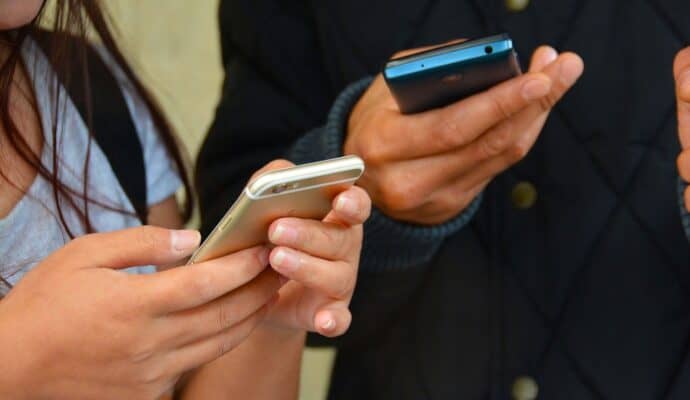Public wifi hotspots can still be dangerous. Yes, cybersecurity has evolved, but hackers and scammers have gotten more creative as well.Unknown wifi connections (especially public, open ones) create an ideal environment for scammers to break into your personal data. Even though this is a declining trend, we should still talk about the biggest risks of using public wifi.
Let’s dig in!

Malware Infections
The most obvious way to hurt public wifi users is through malware distribution. When anyone can connect to a network, all sorts of hidden files can be sent to connected devices.
One common way to trick people into accepting the download is browser hijacking. It comes in the form of a pop-up on your phone’s browser.
So, be extra careful when browsing the internet through a public wifi network and keep an eye out for those pop-ups.
Fake Wifi Hotspots
Fake wifi hotspots are a more intrusive way for scammers to fetch your personal data. A scam like this is just as likely as the pop-up we talked about. But an advanced fake wifi hotspot can let the hacker into every piece of data on your device.
Usually, a scammer will set up a fake wifi hotspot, posing as a trusted, high-authority network. The trick is, once you connect, the hacker gets access to everything you do, and you may not even know about it.
You will have to rely on your common sense for this one. You can google whether there have been any fake wifi hotspot reports in your area to see what you should look out for. The upside is that they usually get busted sooner or later.
If you do decide to use public wifi, whether in your neck of the woods or when traveling, steer clear of sending/receiving sensitive data like personal, health, or financial information.
Data Breaches
Even though the biggest data breaches are mostly connected to hot tech names like Yahoo, public wifi can be an entry point for a data breach as well. These small-scale breaches are meant to gather all accessible data from the connected users.
Like fake wifi hotspots, there’s no easy way of preventing a data breach once you connect to a malicious network. However, you can make it harder for hackers by encrypting your data. To do so, you can connect to a VPN server, which is a tool that filters and encrypts all of the traffic going through your device.
With a VPN, even if the hackers get your data, they won’t be able to do anything with it because it’ll be encrypted.
Eavesdropping
Hackers can intercept your connection to public wifi and modify the packets that come through. In the world of cybersecurity, this is known as eavesdropping. A hacker that gains control over the network (in our case, public wifi) can either change or delete the data passing through.
This type of cyber attack leaves a lot to the imagination because the damage depends on how experienced the hacker is. With the right tools and some people skills, a hacker can deduct a lot about you. But, in this case, you are not defenseless.
Again, the best thing you can do is encrypt your device with a VPN or any other encryption solution.
Of course, no system is bullet-proof, but encryption will give you a fair chance.
Identity Theft and Financial Scamming
We’ve talked about the general cybersecurity flaws of public wifi. The most direct way someone can exploit it is to steal your personal info and use it for financial gain.
The bad news is that it doesn’t take a skilled hacker to execute this. An open wifi hotspot is a playground for them.
The good news is that antimalware apps and firewalls have gotten better in the last couple of years, and commercial VPNs are easier to use than ever. Still, you should avoid using any sensitive data on public wifi.
Stay Vigilant
The best way to keep your data protected is to use secure connections at all times. But sometimes, the circumstances give you no other choice but to connect to public wifi.
And when those times come, remember to keep your firewall up, avoid using sensitive data, and use a VPN whenever possible.

Leave a Reply